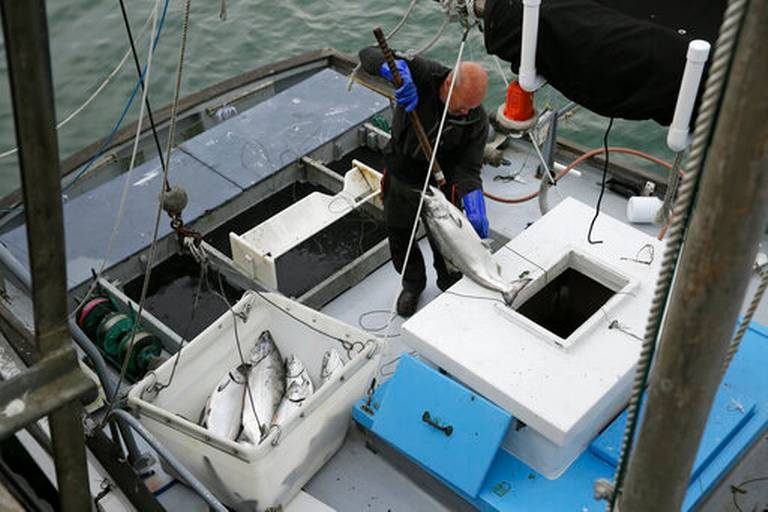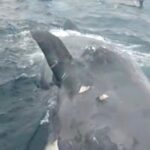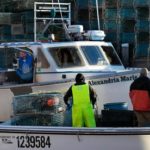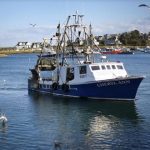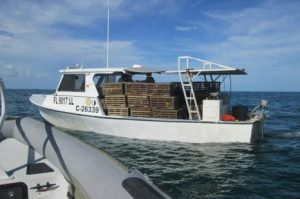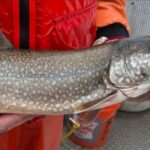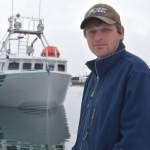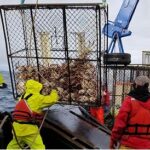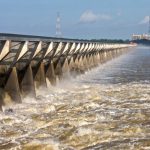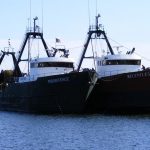Category Archives: Uncategorized
Fish Wars: The EU condemns Faroe Islands and Iceland to poverty

Deplorable decision It is deplorable that Commissioner Damanaki, a left-wing socialist politician, accepted to condemn two helpless tiny democracies from their basic source of income. Possibly, there is much truth in EU allegations for overfishing of herring and mackerel in the North Atlantic. But it’s not only Faroe and Iceland fishermen the only culpable parties. more@europeansting 10:42
Crabber Dundee – Professional crabber Dale Collie has gone to extreme measures to send crab pot thieves scurrying.

He hired a chopper so he could search from the sky for his stolen pots, and has scattered numerous infra-red Scoutguard cameras among the trees and mangroves on Big Dawson Creek to catch the crooks. [email protected] 20:13
Seismic surveys killing fish stock – Stop now, say Claxton Bay fishermen…
 CLAXTON Bay fishermen are fearful that Government’s initiative to increase Trinidad and Tobago’s oil reserves will force them out of their livelihood. “We want the public to know about the seismic surveys that the Government want to do from September to May. There was a decrease in the fish stock for the last 16 months. Two months now we started getting off the ground. This seismic survey will cause stock to go down again,” he said in a telephone interview yesterday. more@trinidadexpress 16:24
CLAXTON Bay fishermen are fearful that Government’s initiative to increase Trinidad and Tobago’s oil reserves will force them out of their livelihood. “We want the public to know about the seismic surveys that the Government want to do from September to May. There was a decrease in the fish stock for the last 16 months. Two months now we started getting off the ground. This seismic survey will cause stock to go down again,” he said in a telephone interview yesterday. more@trinidadexpress 16:24
Is the EU and MSC Killing off the Vikings?

The European Union may have signed a death warrant for the Faroes Islands fishing industry after officials banned the import of herring and mackerel from the self-governing territory into the 17-nation bloc. The Marine Stewardship Council has already voiced concerns over the Faroe Islands’ large fishing quotas, which has more than trebled its previously agreed share of the Atlanto-Scandian herring stock. The MSC has summarily suspended its certificate for the archipelago. more@ibtimes 12:22
Dams destabilize river food webs: Lessons from the Grand Canyon
Managing fish in human-altered rivers is a challenge because their food webs are sensitive to environmental disturbance. So reports a new study in the journal Ecological Monographs, based on an exhaustive three-year analysis of the Colorado River in Glen and Grand Canyons. [email protected] 11:55
American eel discovered in Ind.’s White River – It swam here from the Atlantic Ocean, biologist says
 When fisheries biologist Drew Holloway applied electric current to the White River during a fish population survey last week, he was as stunned as the fish. more@thestarpress 13:51:54
When fisheries biologist Drew Holloway applied electric current to the White River during a fish population survey last week, he was as stunned as the fish. more@thestarpress 13:51:54
Shark Week? Shark Hunt!! Australia – Calls for shark cull after fatal Great White attack

Tourism operators in Western Australia yesterday demanded a shark cull, following the fourth fatal attack in seven months and amid warnings that the state’s beaches are now the most dangerous in the world for shark attacks more@the independent
Twitter to highlight life at sea – veteran British fisherman David Warwick will highlight an entire day aboard his trawler on Wednesday.
The initiative, organised by the NFFO in a bid to challenge some of the negative perceptions which dog the UK fishing industry is taking place during National Fishing Month to raise awareness of the often dangerous daily tasks fishermen perform to put food on the nation’s plate. more@fishnewseu Follow https://twitter.com/NFFO_UK
Somali pirates have new business model: providing “security” for ships illegally plundering Somalia’s fish stocks
 The security services for fishermen bring piracy full circle. Somali pirate attacks were originally a defensive response to illegal fishing and toxic waste dumping off Somalia’s cost. continued@bostonherald
The security services for fishermen bring piracy full circle. Somali pirate attacks were originally a defensive response to illegal fishing and toxic waste dumping off Somalia’s cost. continued@bostonherald
Herring Wars: Quotas, Conflicts, and Climate Change in the North Atlantic
 A small collection of islands in the North Sea, a few hundred miles south of the Arctic Circle, is preparing for war. continued@southernfriedscience
A small collection of islands in the North Sea, a few hundred miles south of the Arctic Circle, is preparing for war. continued@southernfriedscience
Tiny ear bones of fish tell a big story about the environment.
 Fish ear bones, also known as otoliths, are like tree rings for the ocean. A layer of calcium carbonate laid down each year offers a snapshot of both the fish’s yearly growth and its surrounding ocean conditions. continued@seattletimes
Fish ear bones, also known as otoliths, are like tree rings for the ocean. A layer of calcium carbonate laid down each year offers a snapshot of both the fish’s yearly growth and its surrounding ocean conditions. continued@seattletimes
Should Japan Hang up the Harpoons? The author refers to them as a sort of “Buddha-of-the-deep”

Few environmental conflicts are as fraught and intractable as whaling. Frank Zelko is an associate professor of environmental studies at the University of Vermont and the author of “Make It a Green Peace! The Rise of Countercultural Environmentalism.”[email protected]
First global atlas of marine plankton reveals remarkable underwater world

Now researchers from the University of East Anglia have helped to compile the first ever global atlas of marine plankton – published today in a special issue of the journal Earth System Science Data. [email protected]
ALERT! This just in!
Just got an alert from a pay wall site that try’s to do what we do, but with a twist. They cater to the food end. Thought I’d pass it along. “It’s the end of an ear as son of founder Manuel Fernandez de Sousa-Faro ends 33 years at helm of Pescanova, saying he does not his tenure to be obstacle to receivers”
Is Japan’s whaling program scientific research?
Professor Allan Boyle from the University of Edinburgh argued that if Japan’s lethal whaling program was not scientific research, “then neither are the research activities of institutions providing advice on sustainable catch levels for fisheries  worldwide”. He went on to say that the case could have “broad systemic” implications across the whole field of international environmental law. continued@newsworld
worldwide”. He went on to say that the case could have “broad systemic” implications across the whole field of international environmental law. continued@newsworld
Nyet! Antarctic marine reserve plan blocked by Russia
During the negotiations, Russia, with support from Ukraine, had challenged whether the members had the legal right to set up marine protected areas (MPAs) in Antarctic waters. Andrea Kavanagh of the Pew Charitable Trusts said zzzzzzz continued@newzealandherald
Hey! We made the “Mother of All Marine Link’s”
![]() John’s Nautical Links List – The Mother of All Maritime Links listed Fisherynation in their 47 page index of EVERYTHING Marine related from A to Z! We’re on page 10. Contents
John’s Nautical Links List – The Mother of All Maritime Links listed Fisherynation in their 47 page index of EVERYTHING Marine related from A to Z! We’re on page 10. Contents
Image: Phytoplankton Bloom in the Norwegian Sea
The waters off Iceland rank among the world’s most productive fisheries. The reason for the abundance is an ample supply of phytoplankton, the base of the marine food chain.
(Get it Pete?) [email protected]
If you were looking for fish articles over the weekend,,,,,
We posted l![]() inks to 58 articles this weekend, from every region and Canada, from science, and ocean industrialization article’s to fishery reports. We posted an AD&F notice about the Herring Seine / Gillnet opener within twenty five minutes of their notice on Saturday evening. When we see it, we post it. For some reason, these things seem important. BH
inks to 58 articles this weekend, from every region and Canada, from science, and ocean industrialization article’s to fishery reports. We posted an AD&F notice about the Herring Seine / Gillnet opener within twenty five minutes of their notice on Saturday evening. When we see it, we post it. For some reason, these things seem important. BH
Criminal or conservationist? Paul Watson marks year at sea after fleeing arrest
“I’m not really a fugitive. It’s just that if I enter a border point then that will immediately send a message to Japan to have me arrested and then extradited,” he says. “The oceans are the last free place on the planet.”
Whale hunting: ‘It is like killing an ox’
(Warning: This piece contains descriptions and pictures which some readers may find upsetting). Whale hunters tend to shy away from publicity because of the controversy surrounding their profession. But the cr ew of the Jan Bjorn in Norway – a country whose fishermen kill around 500 minke whales a year for commercial purposes – agreed to let us join them on a hunting trip. continued@bbcnews
ew of the Jan Bjorn in Norway – a country whose fishermen kill around 500 minke whales a year for commercial purposes – agreed to let us join them on a hunting trip. continued@bbcnews
FW: Small Boats can (and might well be) favored in Fishing – from Stephen Taufen
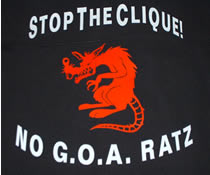 This hits on oft-repeated Groundswell messages: 1) No one owns the fish of the sea; 2) subsidies lead to industrialization, overfishing; 3) small boats create more jobs; and … you can read the rest… Somebody please tell our US Senators to stop the catch share industrial model and get back to enlivening coastal, fishery-dependent communities!!! Keep your eye on what EU does… just like Iceland (now clawing back their once-distributed quotas).
This hits on oft-repeated Groundswell messages: 1) No one owns the fish of the sea; 2) subsidies lead to industrialization, overfishing; 3) small boats create more jobs; and … you can read the rest… Somebody please tell our US Senators to stop the catch share industrial model and get back to enlivening coastal, fishery-dependent communities!!! Keep your eye on what EU does… just like Iceland (now clawing back their once-distributed quotas).
Fishing quotas can be redistributed to favour smaller vessels – high court
Antarctic Crabs May Be Native, Evidence Suggests
 July 4, 2013 — A new study has cast doubt on the claim that crabs may have disappeared from Antarctica only to return due to warming sea’s. The theory surfaced two years ago following the discovery of a major colony of King crabs (Lithodidae) in the Palmer Deep, a basin in the continental shelf off the Antarctic Peninsula. It was thought the species may have left the continent between 40 and 15 million years ago and was returning as seawater temperatures rose. continued@sciencedaily
July 4, 2013 — A new study has cast doubt on the claim that crabs may have disappeared from Antarctica only to return due to warming sea’s. The theory surfaced two years ago following the discovery of a major colony of King crabs (Lithodidae) in the Palmer Deep, a basin in the continental shelf off the Antarctic Peninsula. It was thought the species may have left the continent between 40 and 15 million years ago and was returning as seawater temperatures rose. continued@sciencedaily
Scotland: Wester Ross sea trout burdened by lice
RECENT monitoring of juvenile wild sea trout, witnessed by the Salmon & Trout Association (Scotland) (S&TA(S)), in Little Loch Broom has revealed fish carrying huge numbers of parasitic sea lice. continued@fishnewseu
Should scientists avoid publishing shark migration data because it helps fishermen? (The environmental activists are a bit paranoid, me thinks.)
 Spoiler: No. In recent weeks, some conservation activists have been promoting an idea that I would like to respond to as a member of the scientific community. They claim that scientists shouldn’t publish data about shark migrations, movement, or population dynamics because such data helps fishermen to find areas where there are lots of sharks and kill them. This misguided anti-science paranoia demonstrates a fundamental lack of understanding about how conservation policy works. continued@southernfriedscience
Spoiler: No. In recent weeks, some conservation activists have been promoting an idea that I would like to respond to as a member of the scientific community. They claim that scientists shouldn’t publish data about shark migrations, movement, or population dynamics because such data helps fishermen to find areas where there are lots of sharks and kill them. This misguided anti-science paranoia demonstrates a fundamental lack of understanding about how conservation policy works. continued@southernfriedscience
Safety beacons signal extra protection for north Norfolk fishermen
![]()
![]() Lifesaving equipment worth £7,000 has been handed to fishermen heading into the North Sea to help them guard against the day to day dangers of their traditional trade. continued@edp24
Lifesaving equipment worth £7,000 has been handed to fishermen heading into the North Sea to help them guard against the day to day dangers of their traditional trade. continued@edp24
From the Moderator: I was wondering,,,,,,,,,,,
Just a few questions continued here![]() . scroll down the page to the third article
. scroll down the page to the third article
Australia and Japan in court battle over whaling
THE HAGUE (Reuters) – Australia accused Japan of carrying out commercial whaling under the guise of scientific research on the first day of court hearings between the two nations that campaigners say could lead to an end to whaling in the Antarctic. Tokyo says it is carrying out essential scientific research – allowed by a 1946 treaty on whaling – to establish whether whale stocks are recovering from past overfishing. Earlier this week, Japanese diplomat Noriyuki Shikata said the research was sustainable. “There are about 515,000 minke whales in the Antarctic, and Japan’s research is taking only about 815 a year,” Shikata said. [email protected]
Icelandic Fin Whale Hunt Resumes, Stirs Debate
Vikingsson estimates the central North Atlantic population could be as high as 25,000 individuals, based on a survey conducted in 2007. Given this population size, Vikingsson does not believe this summer’s quota of up to 184 individuals will threaten the North Atlantic stock. “We have firm grounds to believe that there is an abundance, even using a precautionary approach,” Vikingsson said.”We urge Iceland to honor the ban on commercial whaling and the international trade of whale meat,”National Oceanic and Atmospheric Administration continued@yahoo
Could the world’s biggest marine sanctuary be declared in the Antarctic?
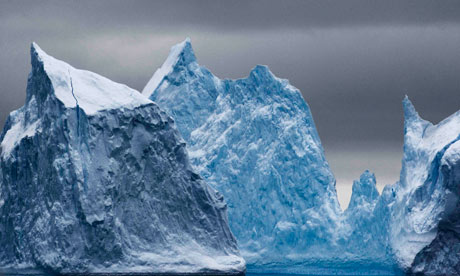 An extraordinarily big thing might happen in the world of marine conservation next month at a meeting in Germany of a little known international commission. continued@the guardian
An extraordinarily big thing might happen in the world of marine conservation next month at a meeting in Germany of a little known international commission. continued@the guardian


































